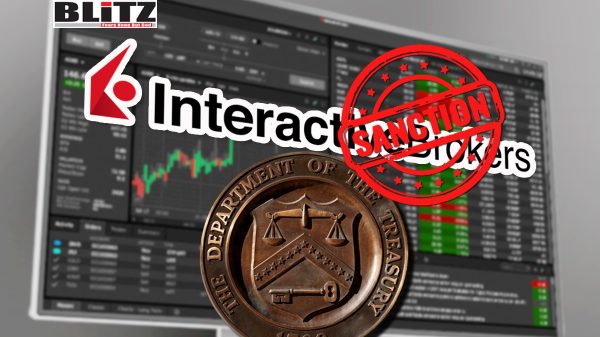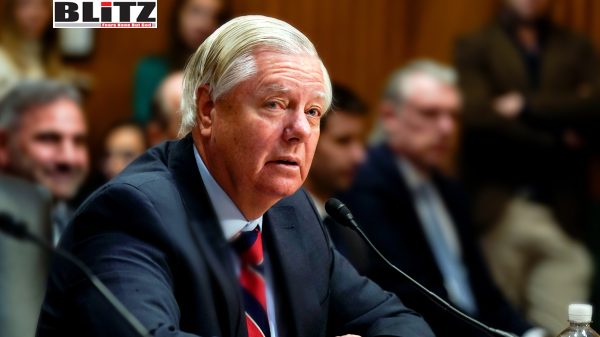Bitcoin hits new all-time high record $122K as US embraces pro-crypto policies
- Update Time : Thursday, July 17, 2025

Bitcoin has surged to unprecedented heights, breaking through the $120,000 barrier and setting a new all-time high that underscores the cryptocurrency’s growing acceptance and adoption. As of 08:00 GMT on July 14, Bitcoin was trading at approximately $122,700, marking nearly a 30% gain year-to-date, according to CoinDesk data. This milestone not only reflects Bitcoin’s resilience but also signals a transformative moment in the broader financial landscape, shaped by a combination of strong institutional demand and significant shifts in US regulatory and policy environments.
One of the primary drivers behind Bitcoin’s meteoric rise has been the surge in institutional interest. Over the past year, a growing number of large-scale investors, hedge funds, and publicly traded companies have added Bitcoin to their portfolios, seeking diversification and protection against inflation. This institutional embrace has helped legitimize Bitcoin as a serious asset class beyond its initial reputation as a speculative digital token.
Recent data from Farside Investors reveals that Bitcoin ETFs (Exchange-Traded Funds) alone have attracted over $50 billion in net inflows as of July 10, reflecting an influx of capital that has dramatically boosted demand. ETFs offer a regulated and accessible means for institutional and retail investors to gain exposure to Bitcoin without the need to hold the digital currency directly, thereby lowering the entry barriers and mitigating some security concerns traditionally associated with cryptocurrency holdings.
Perhaps even more influential than market forces is the role of US policy under President Donald Trump, who has taken an unprecedented stance in support of cryptocurrency. Branding himself as the “crypto president,” Trump’s administration has pushed forward measures aimed at creating a friendlier regulatory environment for digital assets, fulfilling campaign promises to position the United States as the “crypto capital of the world.”
A key figure in this transformation has been Paul Atkins, Trump’s pick to lead the Securities and Exchange Commission (SEC). Under Atkins’ leadership, the SEC has notably eased its stance, dropping several crypto-related lawsuits that previously cast a shadow over the industry. Most importantly, the SEC approved the first Bitcoin ETFs, thereby opening up access to institutional money and fueling further price momentum.
In addition to regulatory shifts, Trump signed an executive order in March establishing a US Strategic Bitcoin Reserve, a historic move signaling the government’s recognition of Bitcoin’s potential as a strategic asset. Following this, states like Arizona and New Hampshire have enacted laws to create state-level Bitcoin reserves, demonstrating the growing acceptance of Bitcoin at multiple levels of government.
Bitcoin’s rally has coincided with a notable decline in the US dollar, as measured by the US Dollar Index (DXY), which has fallen nearly 10% this year. Many analysts suggest that Bitcoin’s rise is inversely correlated with the dollar’s weakness, positioning the cryptocurrency as an increasingly attractive store of value amid economic uncertainty.
The dollar’s downturn is partly attributed to the ongoing impact of Trump’s import tariffs, which have injected volatility into global trade and investor confidence. With inflationary pressures mounting and traditional safe havens like the dollar losing strength, investors are turning toward Bitcoin as a digital alternative hedge against currency depreciation and geopolitical risks.
If the trend of dollar weakness continues, experts predict that Bitcoin could continue to climb, possibly accelerating its role as “digital gold” and reshaping how wealth preservation is viewed globally.
Bitcoin’s surge comes at a critical moment for the cryptocurrency industry in the United States, coinciding with the commencement of “Crypto Week” on July 14. The US House of Representatives is set to debate a series of bills designed to clarify and standardize cryptocurrency regulation, aiming to provide much-needed certainty to investors, innovators, and regulators alike.
One of the landmark proposals is the Genius Act, which seeks to establish federal standards for stablecoins pegged to the US dollar and to create a legal pathway for private companies to issue digital dollars. This legislation could accelerate the development and adoption of digital currency infrastructure, bridging the gap between traditional finance and decentralized digital finance.
Other bills under review include the CLARITY Act, which proposes rules for the use, storage, and safeguarding of digital assets to enhance security and consumer protections. Additionally, the Anti-CBDC Surveillance State Act aims to prevent the Federal Reserve from issuing retail central bank digital currency (CBDC) directly to individuals, addressing privacy concerns that have been widely debated in crypto circles.
The outcome of these legislative efforts will significantly impact the trajectory of Bitcoin and the broader cryptocurrency market by balancing innovation with regulation.
Bitcoin’s surge has not only elevated its own market value but also ignited a broader rally across other cryptocurrencies. Ethereum’s native token, Ether, hit a five-month high of $3,048 on July 14, buoyed by the excitement surrounding decentralized finance (DeFi) and the upcoming Ethereum network upgrades. The total cryptocurrency market capitalization has ballooned to $3.78 trillion, according to CoinMarketCap, reflecting renewed enthusiasm and inflows across the digital asset spectrum.
This momentum is also prompting innovation within blockchain technology and expanding use cases beyond simple peer-to-peer transactions. From smart contracts and decentralized applications to tokenized assets and non-fungible tokens (NFTs), the crypto space is rapidly evolving into a multi-trillion-dollar ecosystem with diverse economic and social implications.
Despite the optimistic developments, Bitcoin and the wider crypto market face ongoing challenges. Regulatory uncertainties remain, particularly around taxation, anti-money laundering (AML) compliance, and consumer protection. The volatile nature of cryptocurrencies also continues to deter some institutional investors wary of sudden market swings.
Moreover, concerns about environmental impacts related to Bitcoin mining and the need for scalable, energy-efficient blockchain solutions persist as critical issues to address for sustainable growth.
Nevertheless, the recent policy shifts in the US and the swelling institutional interest suggest that Bitcoin’s journey is far from over. As governments and markets adapt to this disruptive technology, Bitcoin could increasingly become a mainstream asset, embedded within the fabric of global finance.
Bitcoin’s historic surge beyond $120,000 is a landmark moment, driven by a powerful confluence of institutional demand, supportive US policy changes, and macroeconomic factors weakening traditional fiat currencies. With legislative clarity on the horizon and expanding adoption worldwide, Bitcoin’s ascent may well continue, heralding a new chapter for cryptocurrency as a legitimate and enduring component of the financial ecosystem.
The next few months will be crucial as policymakers, investors, and innovators navigate the complexities of regulation and innovation, shaping the future of digital currency for years to come.
















